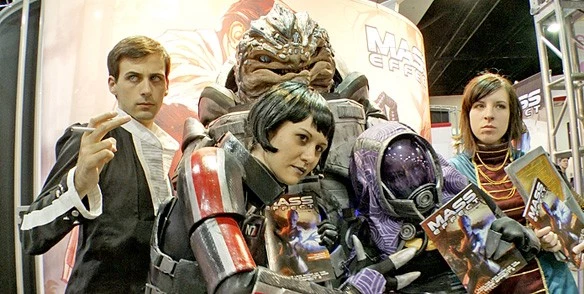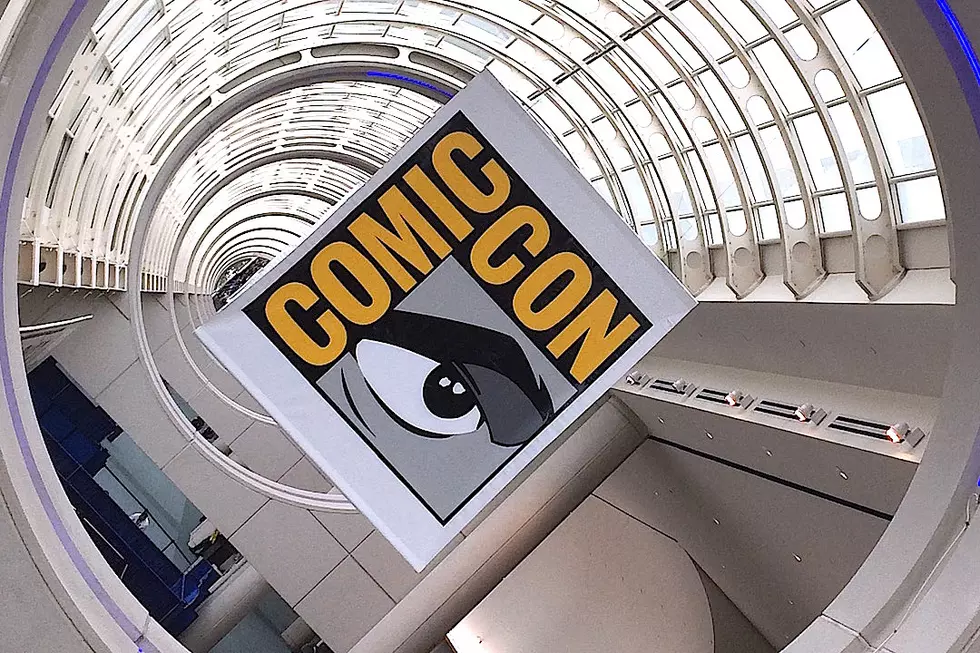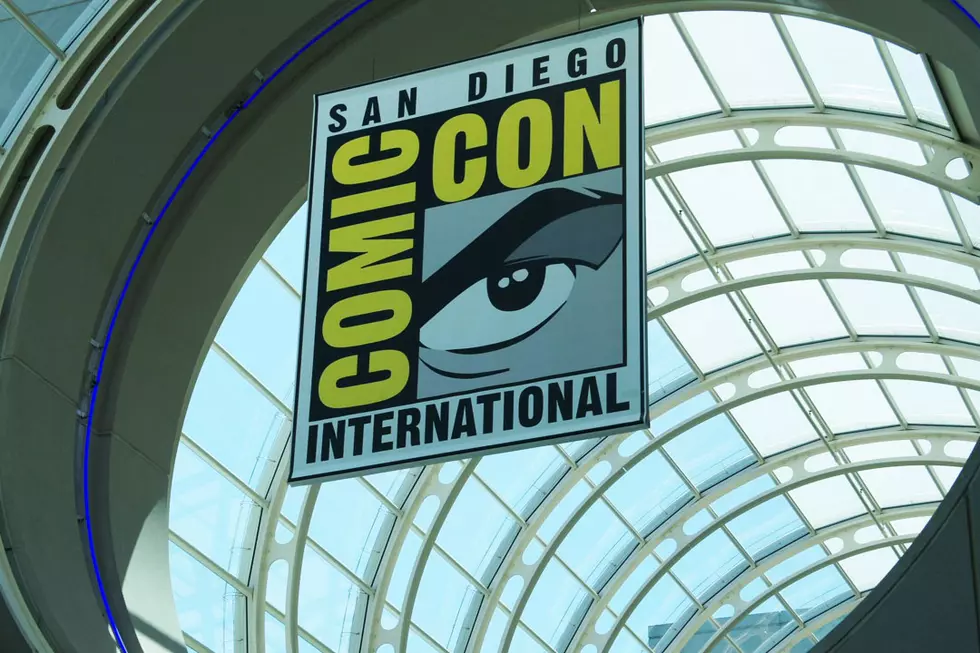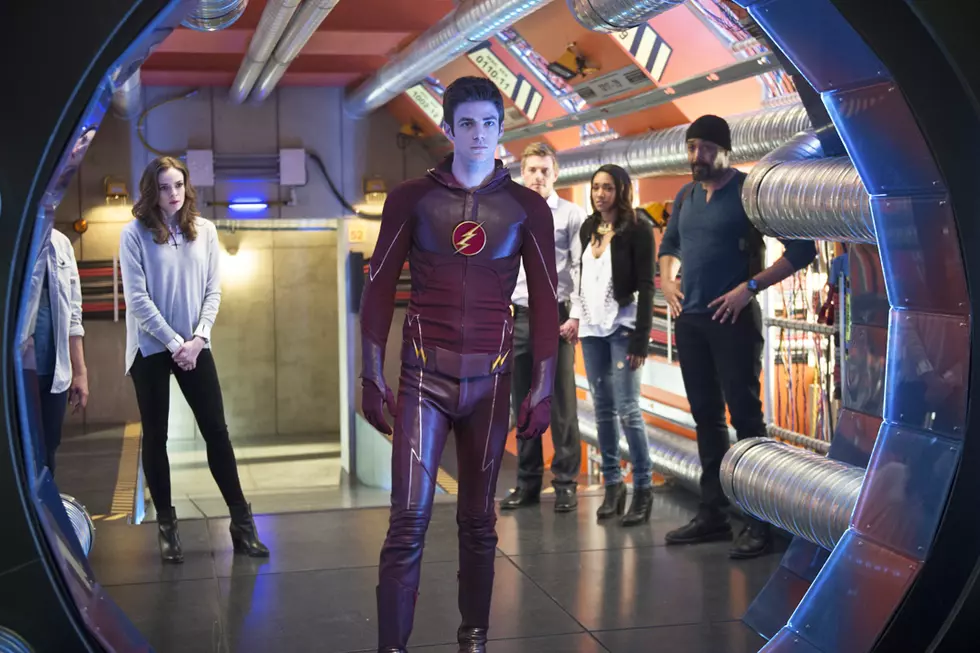![Morgan Spurlock’s Comic-Con Documentary Captures Its Highs and Lows [Review]](http://townsquare.media/site/622/files/2012/04/ccdoc01.jpg?w=980&q=75)
Morgan Spurlock’s Comic-Con Documentary Captures Its Highs and Lows [Review]

Whether you're a fan who looks forward to it with unbridled anticipation, a retailer who hopes for a big payday, or -- like me -- a critic who dreads its coming with increasing terror as it draws ever closer, San Diego's Comic-Con International is a huge focal point for the world of pop culture. It's a fascinating event, and Comic-Con Episode IV: A Fan's Hope, the new documentary from director Morgan Spurlock, does its level best to capture what's so interesting about it on film. Despite the way-too-cutesy title, the end result is a pretty entertaining look at a few different aspects of the world's biggest comic book convention, and all the unique hopes and frustrations that go along with it. Spurlock, probably best known for 2004's fast food-centric Supersize Me, sets his film at the 2010 Comic-Con. This, incidentally, was my first Comic-Con as well, so if you see a dude in the background, stomping around miserably and clearly wishing he was at In-N-Out Burger, that's me. Honestly, as compelling as that would be to watch for two hours, I can't imagine why I wasn't chosen for one of the starring roles.
Spurlock, probably best known for 2004's fast food-centric Supersize Me, sets his film at the 2010 Comic-Con. This, incidentally, was my first Comic-Con as well, so if you see a dude in the background, stomping around miserably and clearly wishing he was at In-N-Out Burger, that's me. Honestly, as compelling as that would be to watch for two hours, I can't imagine why I wasn't chosen for one of the starring roles.
Instead, Spurlock builds a narrative around six people that are heading to San Diego with hopes of getting more than just the experience of going to the convention: two aspiring artists, a costume designer with her hopes pinned on the masquerade, a guy who wants to propose to his girlfriend, a retailer looking to make a huge deal at the show, and... an action figure collector.
It's that last one that seems most out of place in the film, because his story never really has any conflict. There are a few interesting bits, like the fact that he keeps an Annihilus prototype figure under lock and key in a gun safe, but other than showing a portrait of a good-natured obsession, that's about it. He's a dude who collects action figures who wants to get the big Marvel Legends Galactus, and he does. His entire arc takes about five minutes, including a slow motion shot of him running across the convention floor, and then it's done, first thing in the morning on Day One of the con. It's even in a weird place in the film, and feels almost like Spurlock tacked it on after he realized he didn't have anything in there about con-exclusive toys.
Fortunately, the other five stories are far more compelling. The two artists, Skip Harvey and Eric Henson, are a really nice contrast to each other. Henson's a military man serving in the Air Force with a wife and kids who also has a dream to make comics, and Harvey looks like they made a phone call down to Central Casting and asked for the most stereotypical nerd they could find:

The hat, the beard, the Flash tattoo on his wrist, the fact that he's walking around the convention with his portfolio stuck in a child's Marvel Super-Heroes backpack -- it's all sterotyped to the point of cliché. He's even introduced with footage of a conversation about whether Longshot or Black Cat would win in a fight that inevitably turns into the two characters having sex. But his enthusiasm and his hope to be a part of something that he clearly loves with all his heart is genuine, and even for the most cynical viewer, it's hard not to root for him a little and feel for him when his portfolio reviews don't go as well as he hopes.
Holly Conrad, the designer, probably could've carried a documentary all by herself. You've probably already seen her Commander Shepard costume floating around the Internet, and it is pretty amazing:

But seeing it in motion is a whole different effect, especially in how she's able to perfectly copy the stiff movements Shepard displays in the game, and the electronics that make the Grunt costume so fantastic. We also get to see some backstory that adds a whole other layer to it, as she and her team create the costumes in her garage in order to escape from what she describes as an unpleasant town "where people stop to go to the bathroom on their way to go skiing" and "the meth capital of the world."
It's extremely compelling, and even though Spurlock does his level best to ratchet up the tension by cutting back and forth between the other entrants of the masquerade and Conrad's team trying to get the costumes working right after some last minute technical difficulties, her story doesn't need it. The buildup to the one shining moment on the stage is enough. It perfectly encapsulates what I feel like Comic-Con means to a lot of people.
Plus, she has "GARRUS + SHEPARD" spraypainted in a heart in her garage, and that's pretty fantastic.

The retailer, Mile High Comics CEO and President Chuck Rozanski, is an interesting subject as well, although I wasn't initially all that excited to see him being featured. To be honest, it's really tough to believe the narrative that Spurlock is creating about him as a retailer hoping to make one big score by selling an extremely valuable Golden Age book at the con. Rozanski is, after all, a fixture of the comics retail community, and it's really difficult to buy hope or desperation from a guy that's had that much success, especially when he's introduced by talking about how successful Mile High Comics has been.
On the surface, there's just not much to his arc: Guy who sells comics wants to sell a comic, but then -- spoiler alert! -- he doesn't sell the one he wanted to sell, because maybe he didn't want to sell it after all? But while it might not be much of a story, Rozanski is still absolutely fantastic to watch.

He has what are unquestionably the best quotes in the movie. As someone who's been there since the beginning, who has watched the slow takeover of Comic-Con by movies and TV -- turning it into what Marc Guggenheim calls "the world's largest focus group" -- he's in a perfect position to be the guy who voices those frustrations, and somehow manages to do it without coming off as an old grump:
"We can't use the loading docks anymore because LucasFilm owns the loading docks. That kinda pisses you off because... It's our house!"
And he also has a pretty amazing take on relationships, delivered during a conversation about -- no kidding -- Nicolas Cage:
"When a woman tells you to grow up, that's God's way of telling you to get a new woman. Especially if she tells you to get rid of your comics. There's three billion women on the planet, not a lot of great comics."
If Mile High really wants to make a big score, they will put that quote on t-shirts toute de suite.
In the end, Comic-Con has a lot to offer. It's not a typical look at the convention experience, but I don't think it should be, either. It sets these interesting stories of interesting people -- and one dude who wants a Galactus figure -- against a background that's inherently fascinating, and in the process, it provides a look at the show that's new and interesting, even to someone who was there the entire time.
More From ComicsAlliance




![‘Luke Cage’ Teases ‘Wu Tang-ification’ of Marvel Universe [SDCC 2016]](http://townsquare.media/site/442/files/2016/07/lc-comic-con-panel-pic.jpg?w=980&q=75)
![‘Luke Cage’ Breaks Comic-Con 2016 With First Netflix Trailer [SDCC 2016]](http://townsquare.media/site/442/files/2016/07/luke-cage-trailer-pic.jpg?w=980&q=75)



